Jayen Mehta, Managing Director of Gujarat Cooperative Milk Marketing Federation, on cooperation between cooperatives, why India should not support free trade for milk and Amul’s expansion plans. The session was moderated by Associate Editor Udit Misra
Udit Misra: Last year, we saw a substantial increase in the domestic prices of milk. Why was that? Will there be further rise in the near future?
If you look at long-term inflation of milk, vis-a-vis the general inflation in the country, milk has always been slightly below the average inflation. Last year was an aberration because the two years prior to that were Covid years when we couldn’t take any price increase. During the Covid period, hotels and restaurants were closed and the private sector stopped collecting milk and cooperatives got all the milk. During shutdowns, we were operating at 130 per cent of our capacity because we couldn’t say no to the farmers. We also continued our supplies in the market through the lockdowns. There was an inventory buildup in India. We did not reduce the price of the raw materials and farmers continued to get the remunerative price for the milk. There was an overall inflation — feed, fodder cost and general inflation — but we did not pass it on to the consumers.
So, last year, when demand rebounded, you saw milk prices being increased in India, not just by Amul, but by every single player. In the last 10-12 months, there’s been no increase in the prices.
Milk is a source of livelihood. These (RCEP) countries have a surplus — New Zealand exports 95 per cent of the total milk produced. We are not stupid that we will allow our farmers to stay hungry because they have surplus
Udit Misra: What is your view on the amendments in the Multi-State Cooperative Societies Act, 2002?

The government has formed a new Ministry of Cooperation, and realises that for the 1.4 billion people, 70 per cent in rural areas — including landless and small marginal sections of the society and women — cooperatives are the best tool for development. The new Ministry has also created three new multi-state cooperatives. One is on exports, second is on organics and third is on seeds.
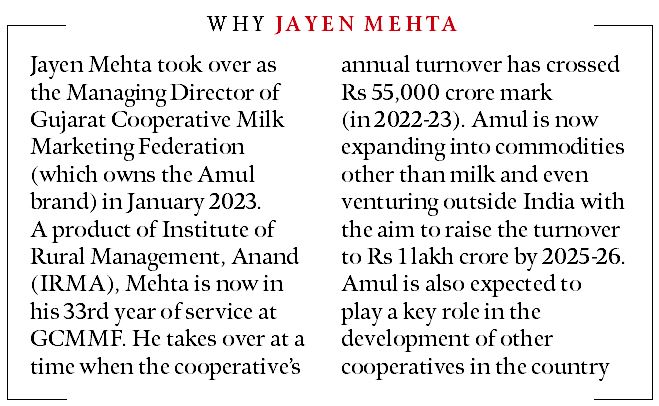
The Ministry of Cooperation identified the top cooperatives of the country — Amul, IFFCO, KRIBHCO, NAFED, NDDB, NCDC and National Cooperative Consumers’ Federation. Between the seven of us, each is incubating new multi-state cooperatives.
The objective is clear — the exports one will identify the international markets for export of all the products the cooperatives make.
The structure of the primary agricultural cooperative societies is being strengthened through computerisation and support. The vision is that in every village if there is an active primary agricultural cooperative society, it will harness the collective might of all the producers of different agricultural crops. If they have a requirement for seeds, they will buy certified seeds and the seeds cooperative will give them certified seeds. The same is happening in the case of milk.
Udit Misra: If you could tell us about recent reports of conflict between Amul and Nandini in Karnataka.
Nandini and Amul are registered under the respective state governments’ Cooperative Societies Act and any change in the Multi-State Act does not impact either of us. We are owned by our respective farmers and there is good cooperation between these two state federations. Since 1998, Amul ice-creams have been packed in Karnataka in the plants owned by the Karnataka Milk Federation with Nandini, and are being sold there. During COVID, when they had surplus milk, we also had surplus milk, and we bought close to 5,000 tonnes of cheese from the Karnataka Federation because they had no other revenue. The conflict is largely in the minds of a few politicians, if I may say so. More importantly, the issue was made-up and hyped. When Nandini wants to set up a new plant, they will come to us. All our facilities, recipes, products and insights are available to them free of cost. Together we have been able to grow this country to this height and keep the multinationals out.
Nandini and Amul are registered under the respective state governments’ Cooperative Societies Act. Any change in the Multi-State Act does not impact us… There is good cooperation between the two state federations
Udit Misra: Few years ago, there was opposition to India joining the Regional Comprehensive Economic Partnership (RCEP). One of the things being said was that India doesn’t want cheaper milk from New Zealand and Australia. Does Amul welcome the opening up of food milk trade?
Milk is a source of livelihood. These countries have a surplus — New Zealand exports 95 per cent of the total milk produced. We are not stupid that we will allow our farmers to stay hungry because they have surplus. And it is not cheap milk. Anything that you think is cheap, we actually pay through the nose. Till 1995, India was self-reliant in terms of edible oil. Somebody gave this magic mantra to the then government that cheaper oil from Malaysia could help us. Look at what has happened today — we are importing 90 per cent of our edible oil, all our oil seed cooperatives have closed, our local oil mills are under pressure and we are paying the price. So, there is nothing like cheap food. Europe, USA, Australia and New Zealand, all of them are looking for a market. We are not just the largest producer of milk in the world, but also the largest consumer. No country will deprive its farmers of their livelihood and depend on imports. Gujarat farmers are getting perhaps the same price or better price for milk than the New Zealand producers today, but our consumers are getting milk at less than half the price compared to a customer in New Zealand.
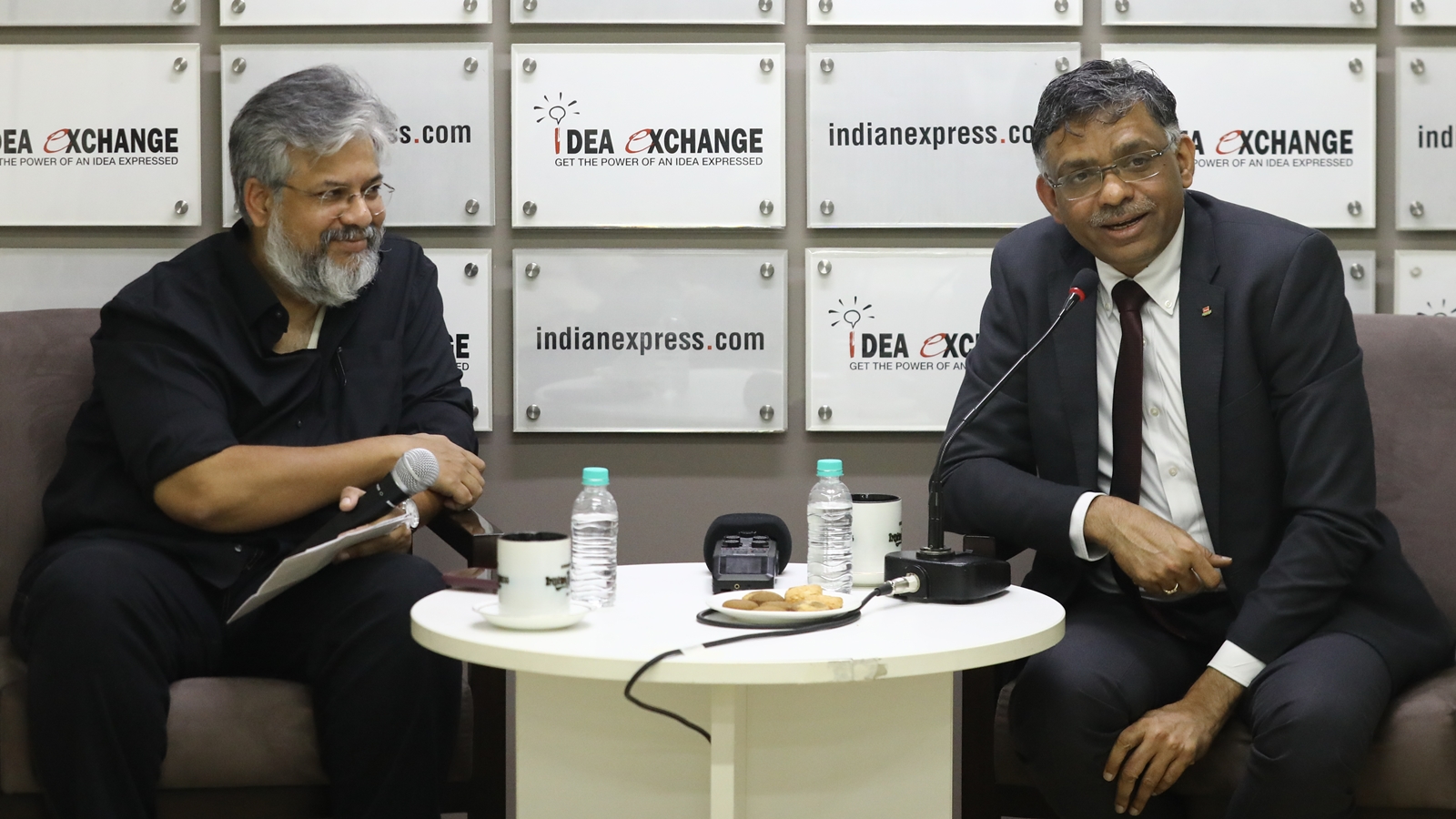 Jayen Mehta (right), Managing Director of Gujarat Cooperative Milk Marketing Federation, with Udit Misra (Express photo by Abhinav Saha)
Jayen Mehta (right), Managing Director of Gujarat Cooperative Milk Marketing Federation, with Udit Misra (Express photo by Abhinav Saha)
Rakesh Sinha: Now that the farmers have been pointing to the rising costs of feed and animal husbandry, how are you managing your pricing?
The nutrition of the cow is the basis on which the output and productivity happens. We manufacture close to 10,000 tonnes of cattle feed every day and this is sold at no profit-no loss business to farmers. That is still one-third of the total feed cost. We give them the high-protein stuff, but the cows also need to eat grass, dry fodder, water and so on. This is the feed part.
There is also the breed part. We have several semen stations, sorted semen technology to see that the breed and productivity of the cows improve. There are veterinary services where you can get a doctor within 30 minutes of calling, in every single village of Gujarat. These are the integrative services a cooperative provides, which keeps a farmer interested in the business.
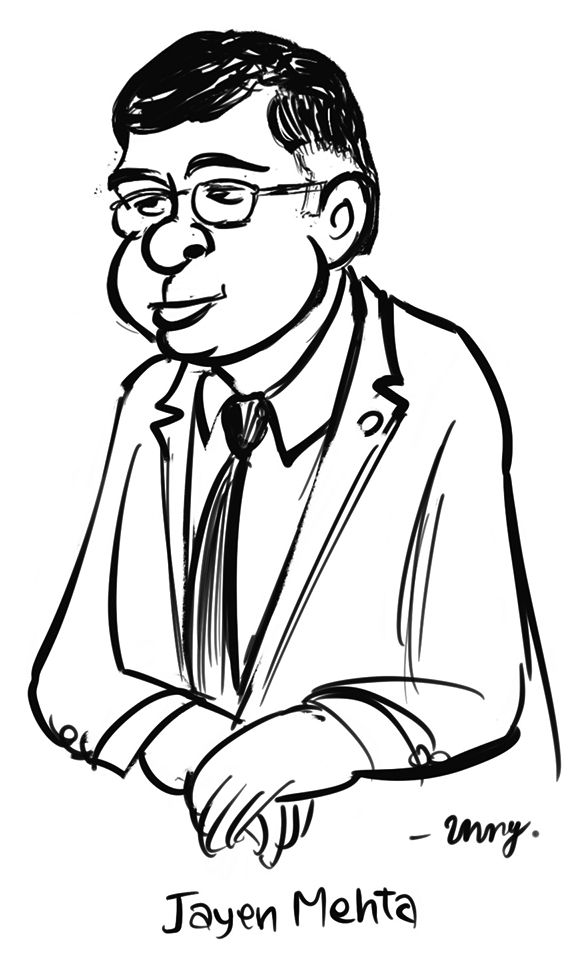
Rakesh Sinha: Is there reluctance among the children of dairy farmers to continue in the trade?
Post COVID, people realise it’s a very assured business. There is reverse migration because there is no problem in selling milk. So, people are investing in it and we are seeing the younger generation getting into it. They are interested in increasing the cattle holding size. With the economies of scale, you are able to employ labour. With automation, milking machines, and the different tools available, it is not a drudgery like it used to be. So, people are coming back into this business.
It’s also our responsibility to keep the farmers interested. So, we run entrepreneurship development programmes and three-month courses where farmers can look at the successful models of how these large farms are working, and we also support them by giving bulk milk-coolers right in their farm.
If the cooperatives work, why shouldn’t we diversify? If they expand, leverage their brand name, why just domestic, let us go international. We should be proud that the cooperatives have made India the largest producer of milk in the world
P Vaidyanathan Iyer: If in the next five-seven years India will be a third of the total global market, why are we reluctant to open trade?
India is one of the most open markets for dairy in the world. You can import any brand of dairy product by paying a nominal duty of hardly 30 per cent. For skimmed milk powder there is a TRQ (Tariff Rate Quota) in which you can import 10,000 tonne for just 15 per cent duty. So, India is open to import. There are countries which don’t even allow a single kilo of import. Still, they want access to our markets at zero duties. No country will be insensitive to the demands of its large number of producers who depend on it for their livelihood.
The US has a 50 per cent import duty on butter, Canada has 250 per cent, and Bangladesh has 78 per cent. So, every country has a right to protect its market, its farmers. To demand that because we are such a big market, we should open up our country with zero per cent import duty, that’s not acceptable.
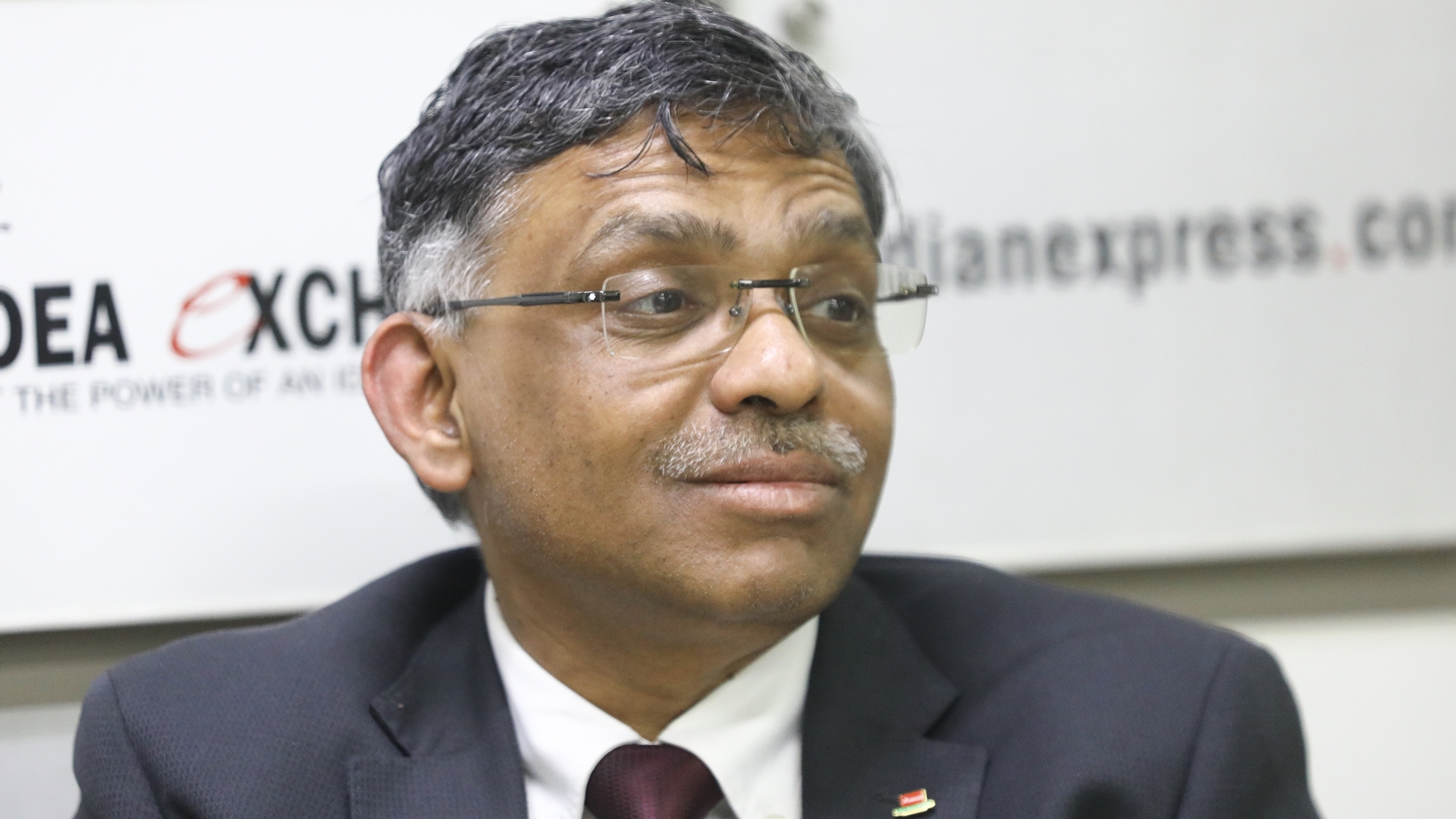 “Amul milk entering into Karnataka was a media creation for just whipping up sentiments in the period known to you,” Jayen Mehta said. (Express photo by Abhinav Saha)
“Amul milk entering into Karnataka was a media creation for just whipping up sentiments in the period known to you,” Jayen Mehta said. (Express photo by Abhinav Saha)
Unni Rajen Shanker: How does the ban on cattle slaughter impact the dairy sector and the farmers?
There are certain things linked to our culture and religious beliefs, and we don’t believe in cow slaughter because cows have a very elevated status in our society. When you treat a cow as a mother, obviously there are sentiments attached. Economics is not important in this regard, but I will share our solution to this.
We are now championing a circular economy. A cow gives milk for 300 days in a year, that’s the lactation cycle. It gives dung every day. If we are able to pull that dung, which we’ve started doing, it becomes a source of biogas. That biogas can light a chulha in a village kitchen or we can purify it and run cars (compressed biogas, CBG). The slurry left behind is a bio fertilizer that can go into the field and replace chemical fertilizers.
So, farmers get an income for the gobar, and India’s fuel and fertilizer imports also reduce. It is a win-win situation and we are trying to strike at that. We have set up multiple plants of micro-model to collect and store dung for local usage. We are also setting up CNG pumps. Additionally, methane can be broken down using solar energy or any other power into hydrogen.
So, a day will come when a dairy cooperative or a cooperative which handles milk in a large volume can also transform into an energy company.
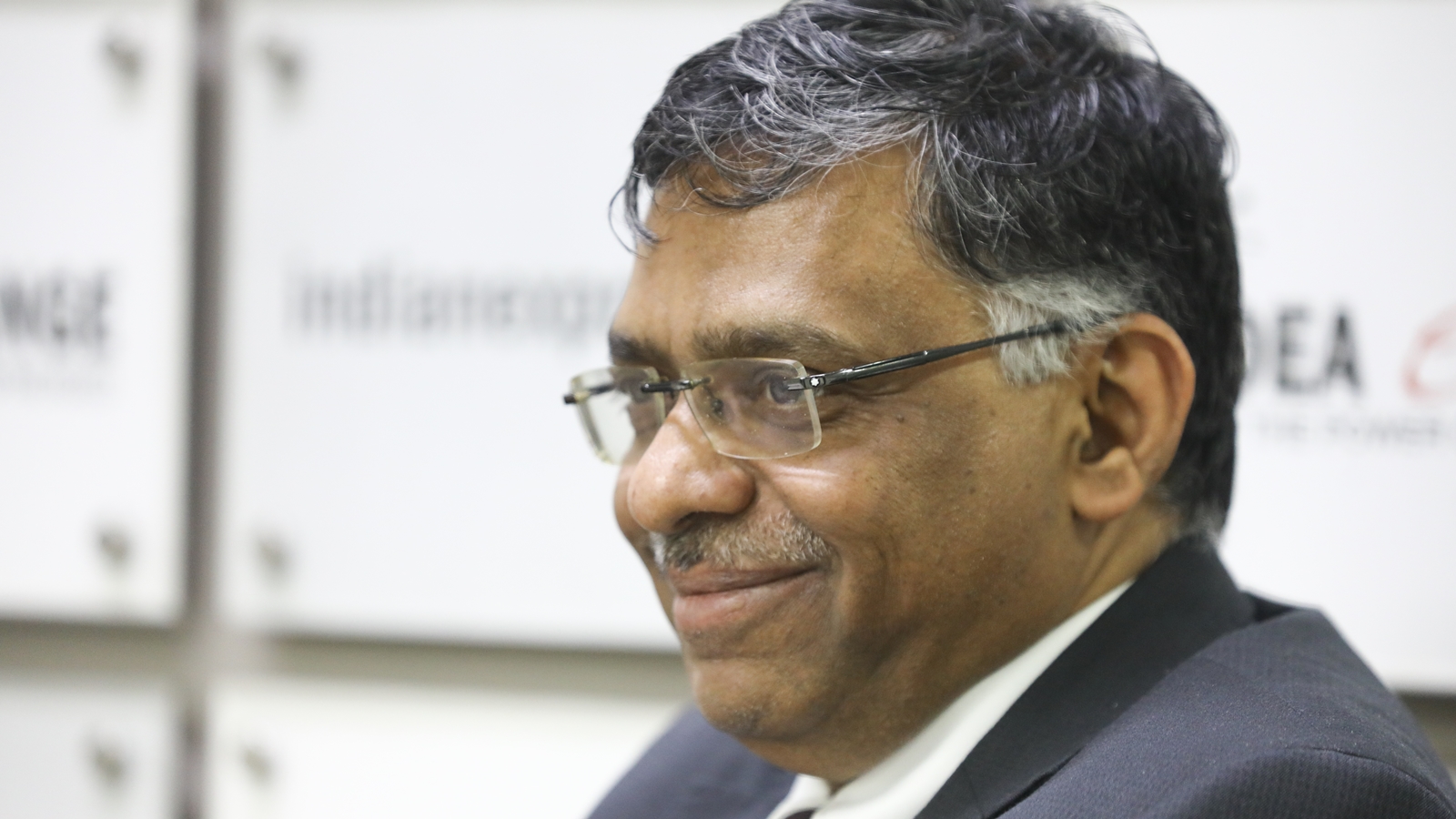 “We should be proud that the cooperatives have made India the largest producer of milk in the world,” Jayen Mehta said. (Express photo by Abhinav Saha)
“We should be proud that the cooperatives have made India the largest producer of milk in the world,” Jayen Mehta said. (Express photo by Abhinav Saha)
Aggam Walia: Can you share Amul’s experience with the PLI (Product Linked Incentive) scheme? Amul is one of the four companies to have received support for mozzarella cheese under this scheme — if you could talk about this specific segment.
The PLI scheme has been good and we have been among the largest investors in the three categories available to us. We are doubling up on our ice-cream manufacturing capacities. We are making new investments in the buttermilk and beverage segment. Mozzarella cheese is another category. The government identifies certain categories that can help India get into a larger space globally, and because we have good quantities of buffalo milk and buffalo, mozzarella is very premium and this one category was identified. We are the largest manufacturers of cheese in the country, and now also the largest manufacturer of mozzarella cheese, and this investment has been benefiting us.
Jatin Anand: India imports a bulk of its whey protein. Given the pace at which the market is growing, will we be able to become self-sufficient in this sector?
In 2018, I happened to be the in-charge Managing Director for Amul Dairy, which makes cheese and a lot of whey is produced. We weren’t getting any price for whey in those days. Whey powder is actually a very cheap commodity. Today, we are selling a range of whey-based high protein products online.
We took some time and have now launched high-protein lassi, where you get 15 gram of protein, compared to normal 4 to 5 gram, in a 200 ml pack. We also have high-protein shakes and are working on a product, which is milk with 30 gram protein. The key thing in India is the need for an awakening that each one of us requires one gram of protein per kg of body weight daily.
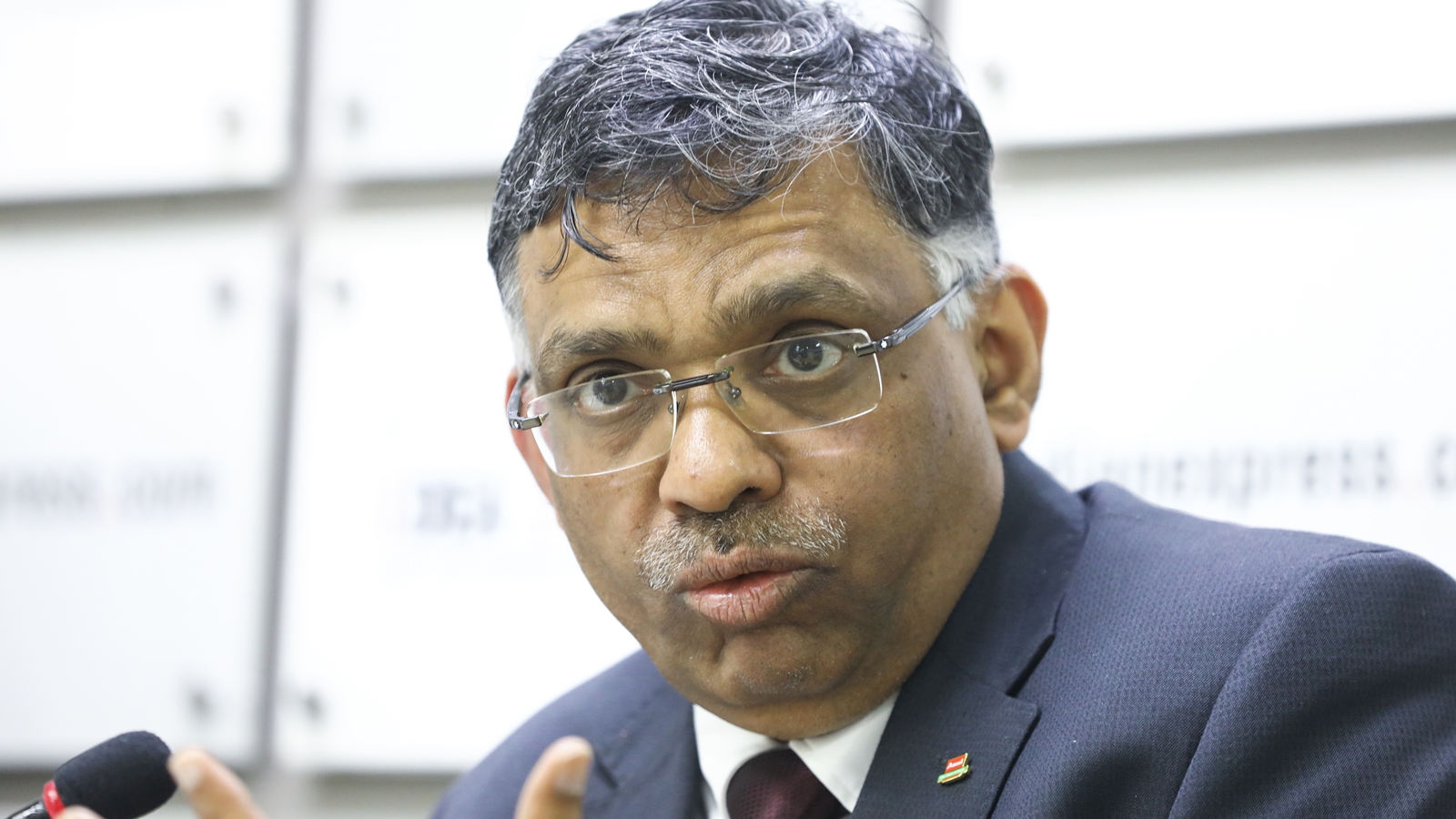 “So, a day will come when a dairy cooperative or a cooperative which handles milk in a large volume can also transform into an energy company,” Jayen Mehta said. (Express photo by Abhinav Saha)
“So, a day will come when a dairy cooperative or a cooperative which handles milk in a large volume can also transform into an energy company,” Jayen Mehta said. (Express photo by Abhinav Saha)
Anil Sasi: Could you talk about the segregation of markets and how do cooperatives decide how to serve the home market they started out with? I believe there has previously been a friction between NDDB and Amul over markets, and now of course Amul’s entry into Karnataka has been announced in the run-up to the polls.
We have been selling milk in Karnataka since 2015-16. So, Amul milk entering into Karnataka was a media creation for just whipping up sentiments in the period known to you.
Practically, every state has some presence of cooperatives. You also have to look at what is the share of the cooperative in the total milk production of the state. Whenever an organised player enters the market, cooperatives play the role of a catalyst. We will have an extra share. The private sector always wants to buy at the lowest price and sell the finished goods for the highest price, keeping the maximum profit for the shareholders and owners. We do exactly the opposite. We buy the raw material at the highest possible price, because we are buying it from the owners. So, whenever a cooperative enters anywhere, it will set the cat among the pigeons. At the end of the day, any farmer would welcome a new institution coming to buy products.
Karnataka sells milk at a price which is much cheaper than any other state. So, who is the government subsidising? They’re subsidising the consumer, it’s not a subsidy to the producer.
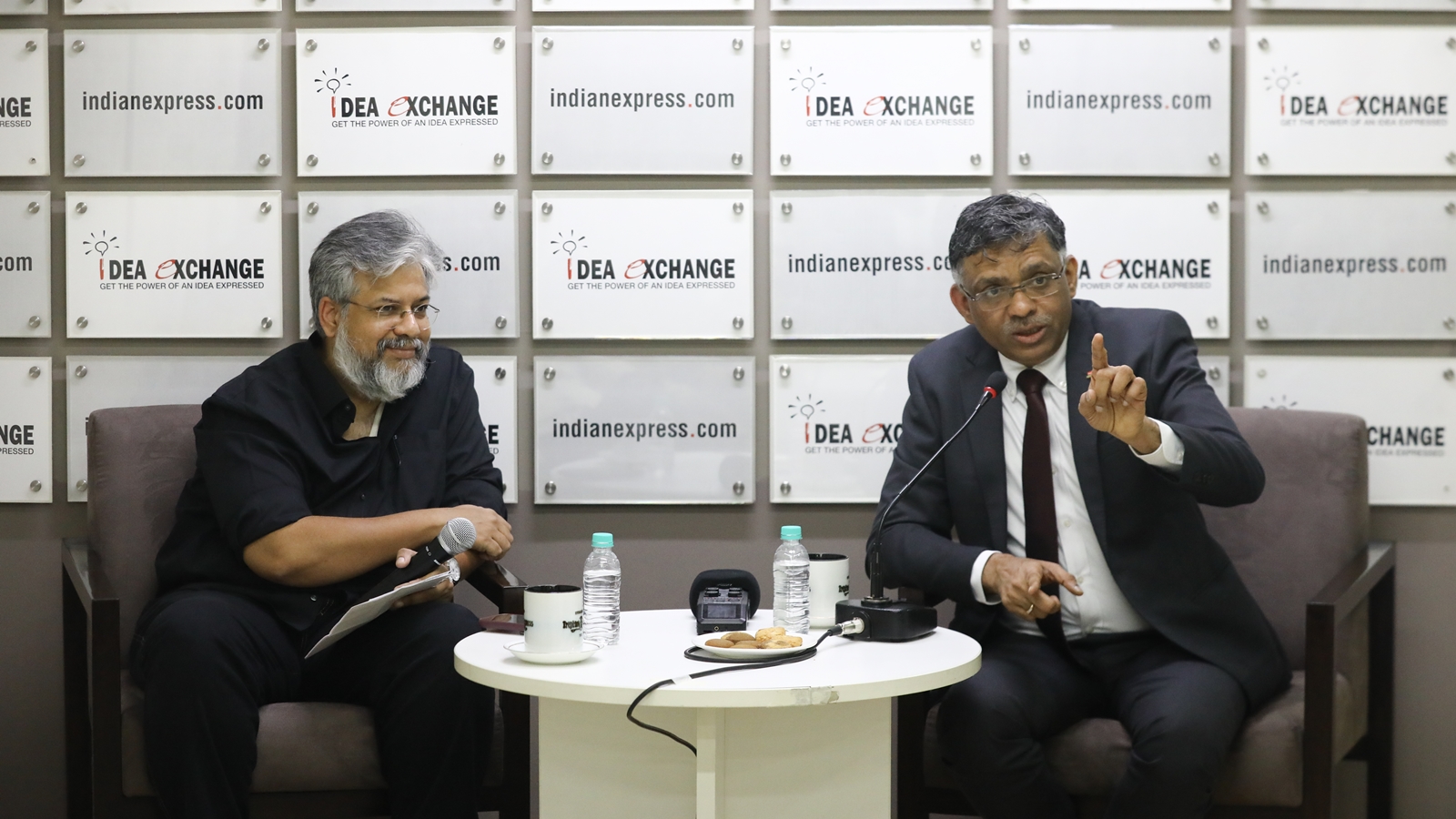 Jayen Mehta (right), Managing Director of Gujarat Cooperative Milk Marketing Federation, with Udit Misra Abhinav Saha
Jayen Mehta (right), Managing Director of Gujarat Cooperative Milk Marketing Federation, with Udit Misra Abhinav Saha
Sukalp Sharma: Amul was a pioneer but now other state cooperatives have also started diversifying into the larger FMCG space. Do you expect any friction with other dairy cooperatives in different product categories, apart from milk.
If the cooperatives work, why shouldn’t we? If they expand, leverage their brand name, why just domestic, let us go international.
India liberalised its economy in 1991 and with that came relicensing, the removal of the borders. With delicensing, what could happen is that Nestle could technically set up a plant next to Amul dairy in Anand. We, as Amul, have gone through this in a very painful way.
Most Read
India vs South Africa, World Cup 2023 Highlights: Kohli’s century, Jadeja’s fifer help India beat South Africa by 243 runs
When Gulzar sat silently with Tabu for one hour, offered her Maachis after that: ‘This relationship impacted my life the most’
We are aligned to the changes that are happening and are not vulnerable to all the shocks which can happen. Every single cooperative has coped with liberalisation. We should be proud that the cooperatives have made India the largest producer of milk in the world. And we have a bonding amongst ourselves.
Kaunain Sheriff M: In the last five years, Amul has seen a significant visibility in the dark chocolate segment. How did this surge happen?
Also Read
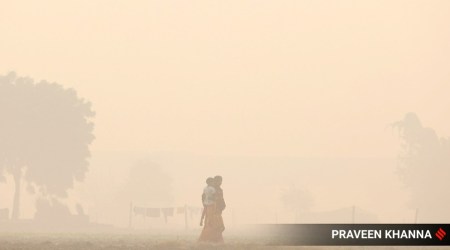

(A decade ago) we experimented with dark chocolate. The darkest dark in those days was Bournville, which was 45 per cent dark, which they’ve increased to 50 per cent. Our dark started with 55 per cent. We entered this market with a slab of 150 gram for Rs 100, with elegant packing and zero marketing, only using the power of social media. From 2015-2016 to today, people have started talking about it, and we have implemented suggestions to do 75 dark, 90, coffee flavour or orange flavour or sugar-free. We have created a portfolio of more than 30 SKUs (stock-keeping unit) of dark chocolate. We also started getting cocoa from Peru, Venezuela, Tanzania and Colombia, and launched a ‘single country’ age of chocolates. Today, we are the largest manufactures of dark chocolates in the country.




